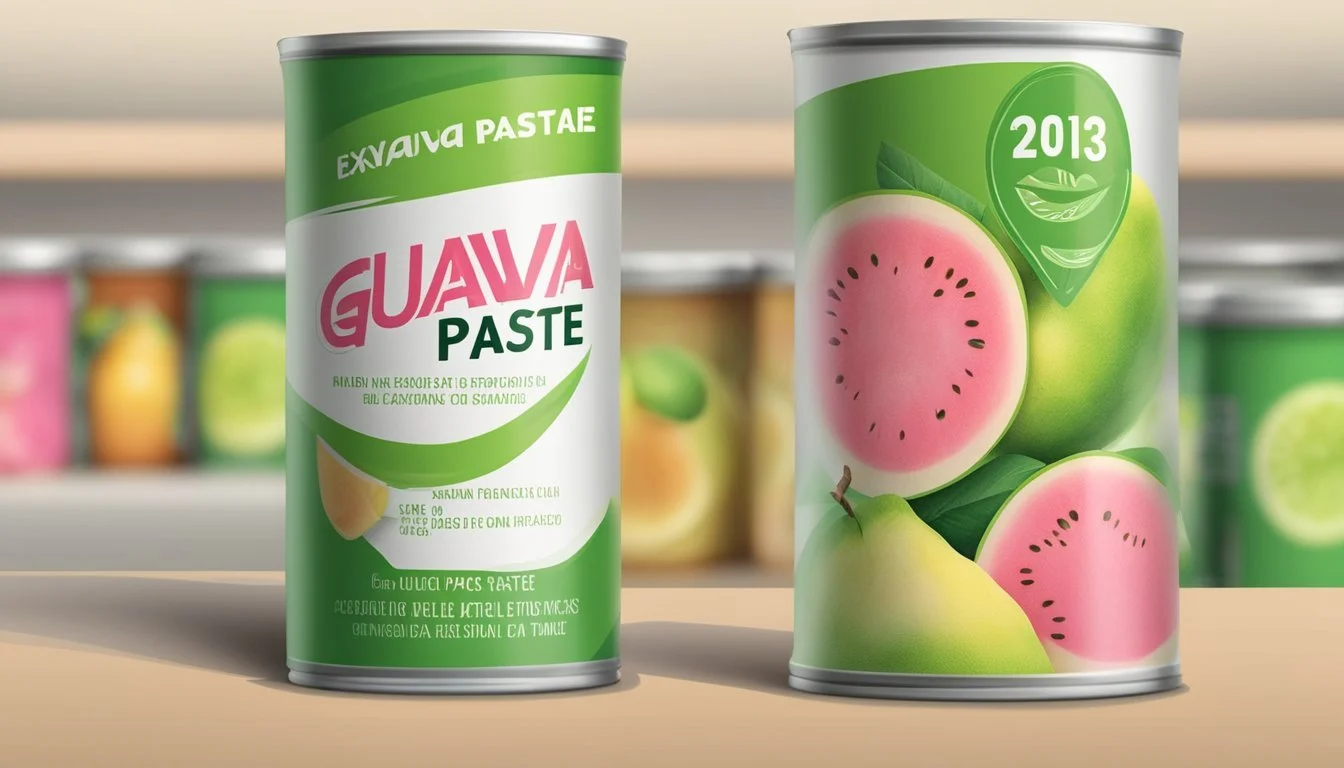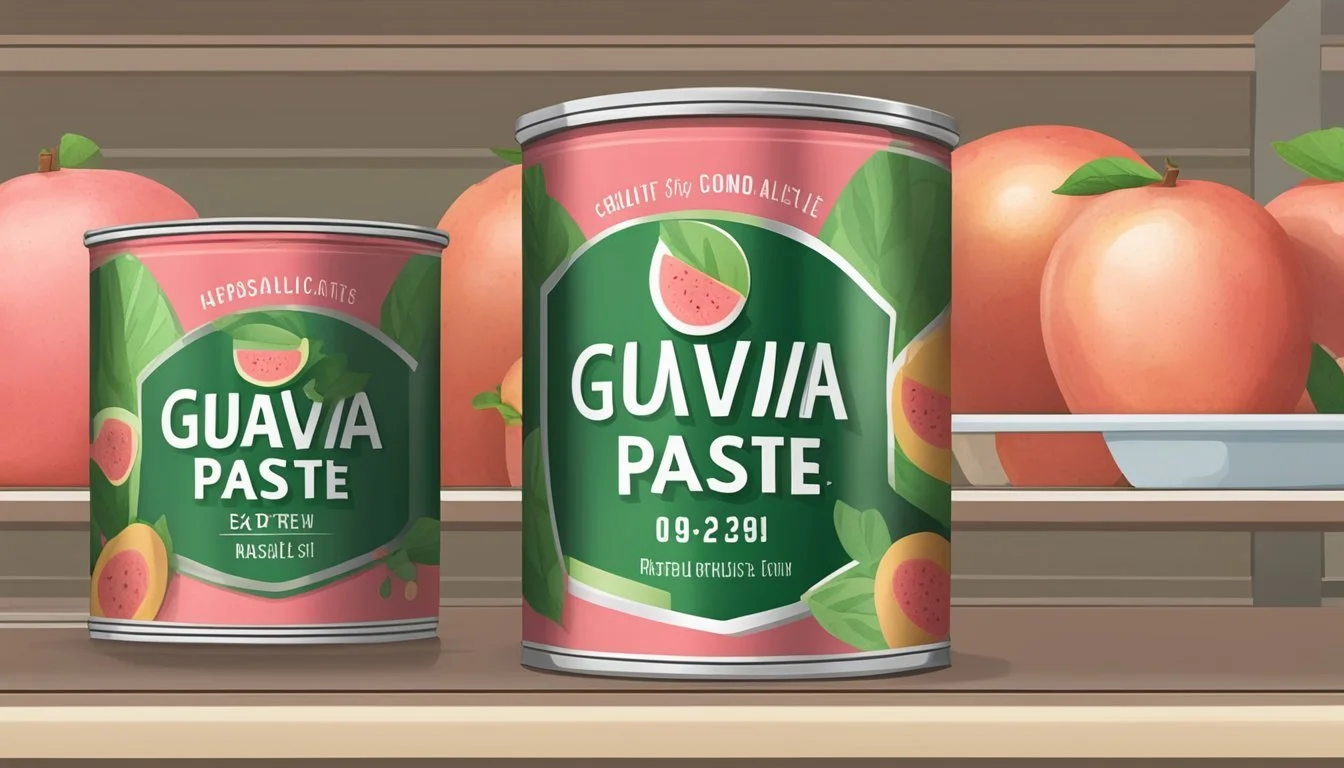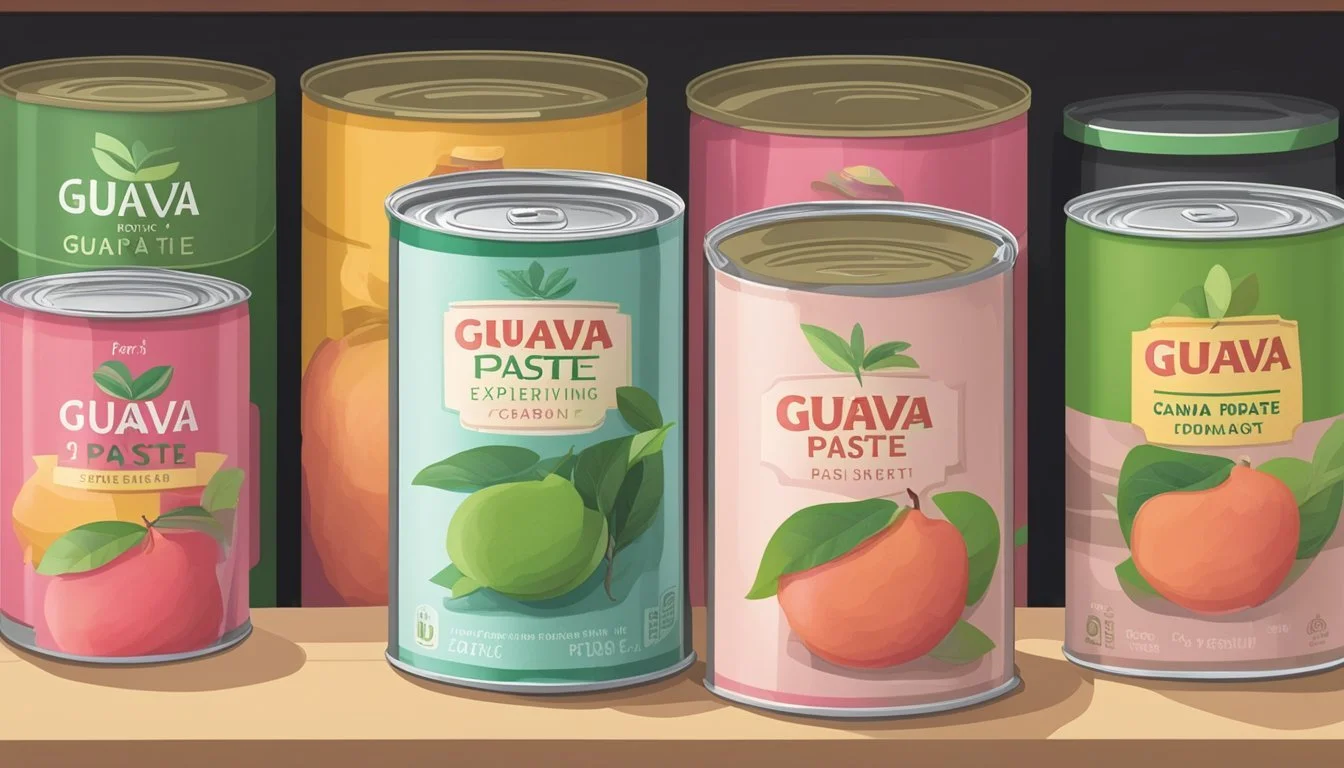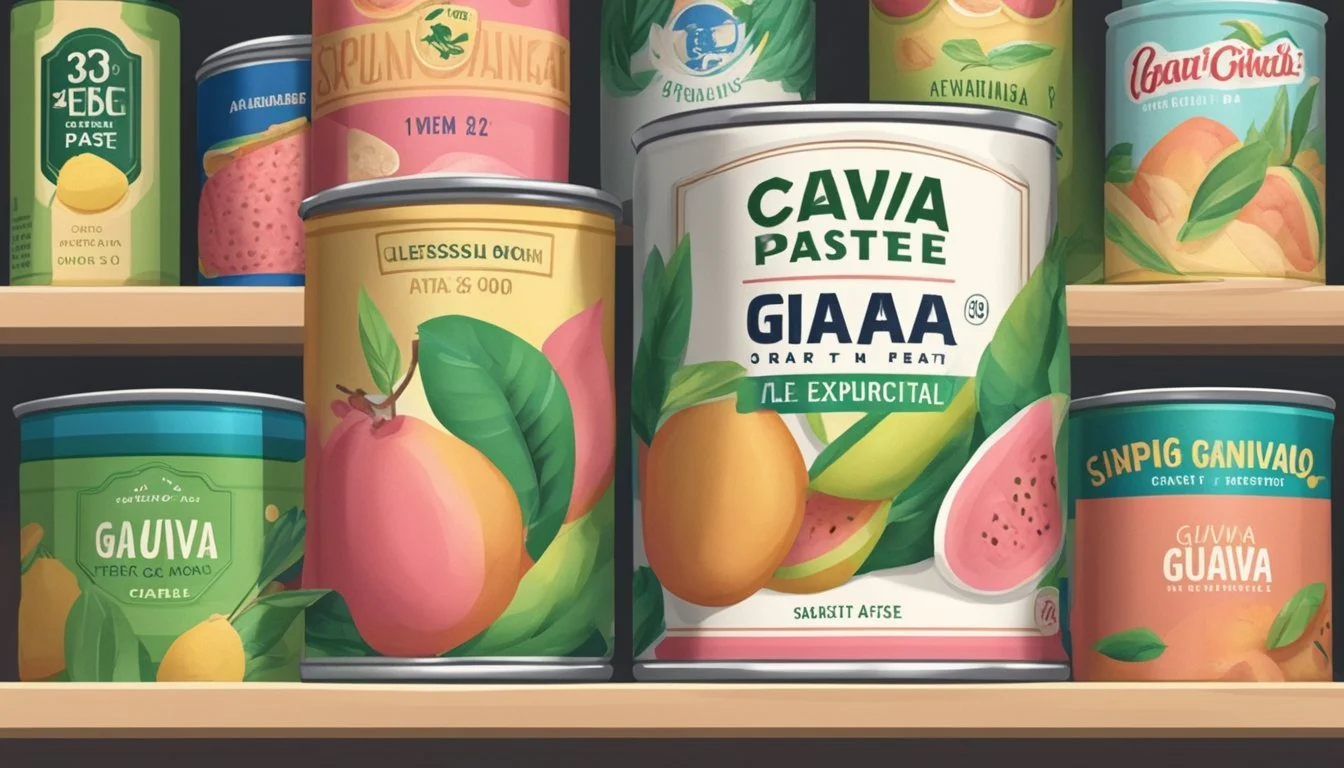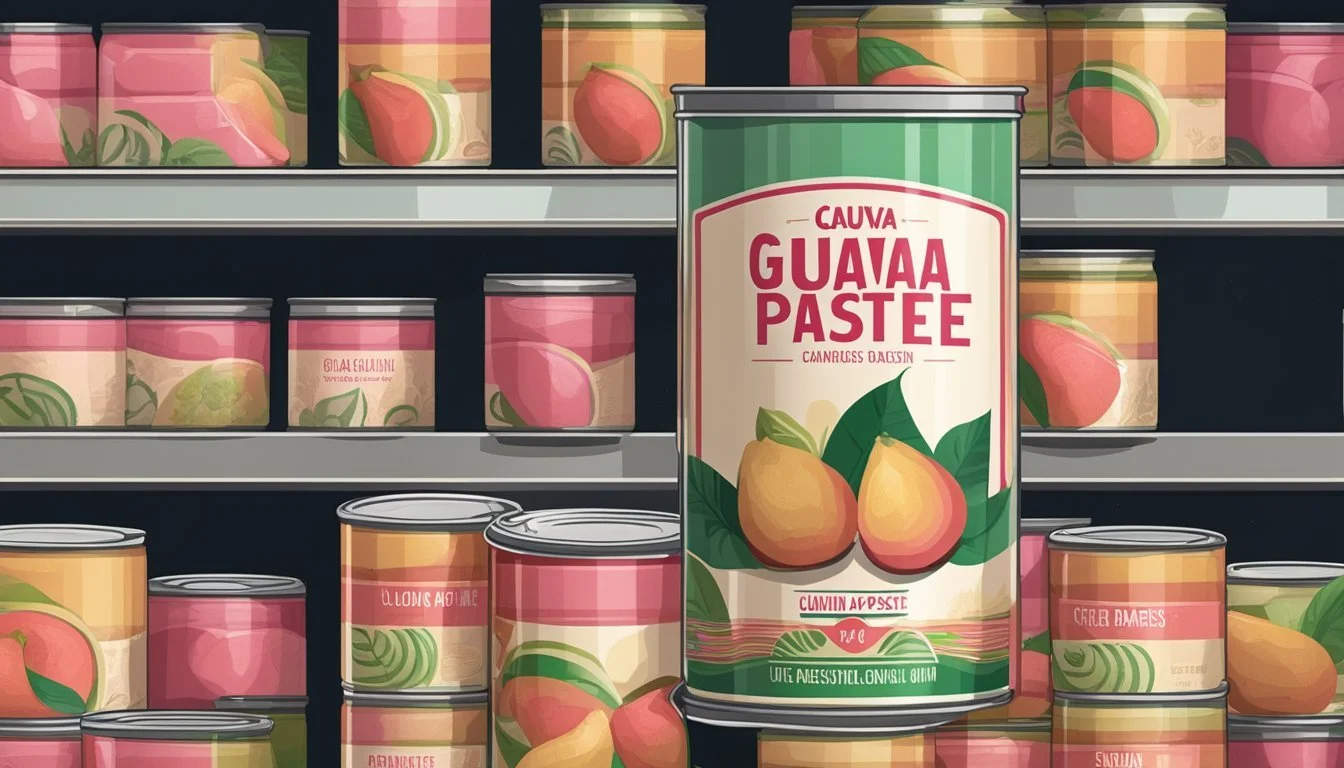How Long Does Canned Guava Paste Last?
Shelf Life and Storage Insights
Guava paste, a concentrated form of guava fruit, is a staple in many culinary traditions, valued for its rich flavor and versatility. Its shelf life is of particular interest to those who appreciate its unique taste and utility in recipes. When stored properly, canned guava paste is known for its longevity, usually maintaining its quality well beyond the date printed on the can.
The key to preserving the quality and safety of guava paste lies in proper storage. Unopened cans of guava paste typically last for years when kept in a cool, dry place, away from direct sunlight and extreme temperature changes. Once opened, the paste should be stored in an airtight container in the refrigerator to retain its freshness and prevent spoilage.
The assessment of the paste's condition is essential for safe consumption. Signs of degradation include an off smell, mold growth, or a noticeable change in texture. Consumers are advised to rely on these indicators to determine the product's quality rather than solely depending on the best-by date. Regular checks ensure that the guava paste remains a safe and delicious addition to various dishes.
Understanding Guava Paste
Guava paste, a thick and sweet confection, is derived from the tropical fruit guava and sugar, offering a flavorful addition to various culinary uses.
Composition and Properties
Guava paste is traditionally made by cooking down guavas with sugar until a thick, jelly-like consistency is achieved. The paste's texture is dense and firm, akin to that of quince paste or jelly candies, and can be sliced or spread. The intense preservation process imparts a longevity that fresh guava lacks, extending its shelf life significantly.
Varieties of Guava Paste
Guava paste is produced using different varieties of guava, each contributing its own hue and subtle flavor differences. Some pastes may be smooth, while others preserve bits of the guava’s flesh, providing a more textured experience. The paste's color ranges from a pale yellow-pink to a deep ruby red, depending on the type of guava used.
Nutritional Value
The nutritional value of guava paste is influenced by its two main ingredients: guava and sugar. Guavas themselves are rich in vitamins C and A, dietary fiber, and antioxidants. However, the addition of sugar to create the paste increases its caloric content while diluting the fruit's nutrients. Here is a simplified nutritional profile typical of guava paste:
Calories: High due to added sugar
Dietary Fiber: Present from the guava pulp
Vitamins: Vitamin C and A from the guava, but lower in paste form
Antioxidants: Present, but reduced compared to fresh guava
Shelf Life and Expiration
When considering canned guava paste, its longevity is pivotal. The product's shelf life and expiration date serve as key indicators of freshness and safety, while awareness of potential spoilage signs ensures quality consumption.
Determining Shelf Life
The shelf life of canned guava paste can generally range from one to two years when unopened and stored properly. It is essential to store canned items in a cool, dry place away from fluctuating temperatures and high humidity to maximize shelf life.
Expiration Date Significance
An expiration date on canned guava paste indicates the manufacturer's estimate for the last date of peak quality. While it can often be safe to consume the paste after the expiration date, the quality, regarding taste and texture, may not be ideal. Thus, heeding this date is advisable to ensure the best guava paste experience.
Signs of Spoilage
One should look for visual cues such as mold, changes in color, and check for off odors to identify spoilage. If the guava paste exhibits any of these characteristics or an unusual smell, it should not be consumed. Spoilage can compromise safety and diminish the product's palatable nature.
Proper Storage Conditions
Proper storage of guava paste is critical in maintaining its quality and extending its shelf life. Specific conditions differ whether the guava paste is in unopened cans, after the can has been opened, or if freezing is the chosen preservation method.
Unopened Cans
Unopened cans of guava paste should be stored in a cool, dry place. The ideal temperature range is between 50°F and 70°F (10°C to 21°C). They should be kept away from direct sunlight and areas with high humidity or fluctuating temperatures, which can compromise the quality.
After Opening
Once opened, guava paste must be transferred to an airtight container to minimize air exposure. It should then be refrigerated to preserve freshness. Refrigerating in an airtight container can significantly extend the paste's usability, typically lasting 2 to 3 months.
Freezing Guava Paste
Freezing extends the shelf life of guava paste even further. To freeze guava paste:
Wrap it tightly: This protects it from freezer burn.
Use airtight containers or heavy-duty freezer bags: Labeling with the date of freezing is also recommended.
Frozen guava paste can last for up to one year when stored correctly in the freezer.
Safety and Quality Preservation
When it comes to canned guava paste, ensuring the safety and maintaining the optimal quality of the product are paramount. Consumers should focus on identifying any issues with the packaging that could compromise safety and follow best practices to preserve quality.
Identifying and Handling Contaminated Cans
It is vital to inspect canned guava paste for signs of contamination before use. Consumers should avoid cans that show any evidence of dents, especially if they are severely dented, as this can compromise the airtight seal. Rusting or swelling also indicates potential contamination and such cans should not be used. If a can is leaking, has a bulging top or bottom, or spurts liquid when opened, it likely contains harmful bacteria and should be disposed of immediately.
Maintaining Optimal Quality
To preserve the best quality of canned guava paste, storage conditions are crucial. Unopened cans should be kept in a cool, dry place away from direct sunlight. Once opened, if not used immediately, the guava paste should be transferred to an airtight container to prevent spoilage. The use of preservatives in the guava paste can extend its shelf life, but it is always recommended to adhere to the best-before dates for optimal flavor and texture. Refrigeration can significantly extend the quality preservation of the opened guava paste.
Usage Ideas and Tips
When incorporating guava paste into your culinary repertoire, one discovers its versatility ranging from sweet to savory dishes. It adds a distinct flavor that complements numerous ingredients.
Cooking with Guava Paste
Guava paste's thick consistency and sweet-tart flavor profile make it an excellent addition to various dishes. Chefs can enrich stews and soups with a small quantity of guava paste for a subtle sweet note. It also pairs exceptionally well with proteins, such as beans or chicken, offering a balance of flavors when added during the cooking process. When preparing dressings, a blend of guava paste with ingredients like lemon juice and herbs can create a unique and delightful taste. To enhance the guava paste's smoothness, one might consider melting it over a low boil before incorporating it into recipes.
Recipe Inspirations
In the realm of desserts, guava paste serves as an innovative ingredient. Here lies a selection of ways to integrate guava paste into your recipes:
Cheese Accompaniment: Combine guava paste with various cheeses, cutting it into squares for a convenient appetizer.
Pastries and Baked Goods: Utilize guava paste as a filling for pastries, creating a complement to sweet and buttery flavors.
Tropical Combinations: Infuse guava paste into juices such as guava juice or pineapple juice by blending it in a blender until smooth, providing an enhanced tropical experience.
Savory Pairings: Enhance meats with guava paste as a glaze, offering a caramelized, fruity layer to the final dish.
By exploring these uses, guava paste can be a transformative ingredient for both new and traditional recipes.
Frequently Asked Questions
This section addresses common inquiries about preserving the quality and identifying the spoilage of guava paste, including freezing methods and potential changes in flavor over time.
Can You Freeze Guava Paste?
Freezing guava paste can extend its shelf life significantly. To freeze properly, one should wrap the paste tightly in cling film or parchment paper, ensuring all air is expelled, and then place it inside an airtight container or freezer bag. Frozen guava paste can maintain its quality for several months and up to a year.
How to Tell if Guava Paste is Bad?
Signs that guava paste has spoiled include a noticeable change in texture, appearance, or odor. One should look for any presence of mold, a sour smell, or any discoloration on the paste. If the paste becomes excessively hard or shows any signs of fermentation, such as bubbling, it should not be consumed.
Does Guava Paste Lose Flavor?
Over time, guava paste may lose some of its vibrant flavor, even when properly stored. However, freezing or refrigerating it in airtight conditions can help to preserve its flavor. Continuous exposure to air, heat, or light can accelerate flavor loss, so it's essential to store guava paste in a cool, dark place.
Conclusion
When considering the shelf life of canned guava paste, consumers can expect it to last 1 to 2 years unopened under proper storage conditions, which include keeping it in a cool, dark, and dry place. Once opened, it should be transferred to an airtight container and refrigerated, where it typically remains of good quality for up to 1 month.
The preservation process of canning significantly extends the longevity of guava paste by providing a sterile environment that inhibits microbial growth. It is, however, imperative to check for signs of spoilage, such as mold or an off-smell, prior to consumption, as these indicate that the paste is no longer safe to eat.
From a nutritional standpoint, guava paste retains much of the fruit's vitamins and minerals, although the sugar content is often high due to the addition during the preservation process. The quality and flavor of guava paste are largely preserved through the canning process, making it a reliable and convenient option for enjoying the taste of guava year-round.
To sum up, proper storage is key to maintaining the paste's quality and ensuring that its flavor and nutritional value are preserved for as long as possible. Consumers should note the expiration date on the can, and after opening, prioritize using the guava paste to enjoy its optimal characteristics.

